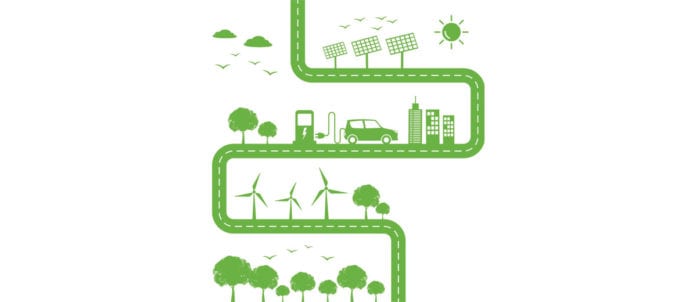While many operators have been focused largely on survival for more than a year, the reality remains that environmental responsibility and sustainable practices remain a key part of operating a successful business for the future.
Technomic data shows 65 per cent of Canadians say social responsibility is important to them when deciding which restaurant to visit. And 50 per cent reported that environmental social responsibility, specifically, is important when making this decision.
Recognizing these consumer expectations, Chicago-based Technomic’s report What to Expect in Canada in 2021 highlighted “Taking a Stronger Stand” as a key trend set to shape the industry this year.
“We did see some social and environmental progress paused when the pandemic hit, but the degree to which these calls have become louder and more urgent means we’re going to see operators double down on their efforts over the coming year,” Aimee Harvey, senior managing editor, Technomic, said during the report’s accompanying webinar. “We’ll see the Canadian foodservice industry take a stronger stand on social-responsibility issues and this priority will extend across discrimination issues that affect the consumer and environmental issues that impact the planet.”
And, as Toronto-based Nourish Food Marketing noted in its recent White Paper marking the pandemic’s one-year anniversary, safety concerns led to a rise in single-use plastic use, but as consumers begin feeling safer, they will expect to see more re-use and reduction strategies implemented and will begin holding the industry accountable on this front.
Increased levels of takeout and delivery, as well as the adoption of new channels, such as meal-kit and subscriptions services, have further added to the issue of food-packaging waste.
This fact has not been lost on Ali Khan Lalani, founder & CEO of Toronto-based General Assembly Pizza (GA Pizza), which expanded into e-commerce and frozen-pizza subscriptions in 2020. “Based on customer feedback from our e-commerce channel, we decided that, out of the gate, we wanted to be shipping with less waste,” he explains. And this led the brand to commit to achieving 100-per-cent divertible consumer packaging and compostable product packaging.
“Corporate environmentalism is a world of grey areas and it was important to our team that GA Pizza’s contribution be a positive one — that we approach this with a plan that was more than a marketing stunt,” Lalani explains. “Our purpose is to show the world that better can be easy…We’ve built the holistic GA Pizza
experience to be better.”
Dollars and Good Sense
“There has long been this notion that to be sustainable, or to implement a sustainability strategy or initiatives, it has to come at a big cost; there has to be a trade-off between being a sustainable company and maximizing profit,” Josh Prigge, founder & CEO of U.S.-based Sustridge Sustainability Consulting, shared during RC Show 2021 held in March. “[But,] a lot of the research shows that it’s just not the case. Companies aren’t just doing good at the cost of profit, they’re actually doing well by doing good.”
“We’re seeing some of these leaders taking the next step towards corporate – development and that’s about companies not just reducing their negative impacts and doing less bad, but actually doing more good and working to not just reduce those negative impacts, but to completely eliminate them and be an overall positive force in the world,” Prigge explains, pointing to brands such as KFC, McDonald’s and Wendy’s, which have set ambitious goals around waste and energy consumption.
Although the vast scope of the challenges presented by the pandemic has led many to focus their attentions on areas other than environmental sustainability over the last year, some of the industry’s big players re-affirmed and strengthened their commitments during the crisis.
In October, Tim Hortons announced a series of plans to reduce the brand’s environmental footprint. Among these was a first-of-its-kind partnership with TerraCycle’s zero-waste platform, Loop, to pilot a program that offers customers the option of paying a deposit and receiving reusable and returnable cups or food containers with their order. The pilot was slated to start testing the offering in select Toronto restaurants this year.
“During COVID, we’ve seen that consumers have relied more on single-use cups and containers due to health restrictions. This initiative by Tim Hortons signals that getting back to adopting re-usable containers will be important when those restrictions are lifted,” says Tom Szaky, CEO of TerraCycle and Loop.
Additional initiatives announced by Tim Hortons included 100-per-cent recycled-fibre napkins that use 25-per-cent less material; new, fully recyclable paper-based wrappers for sandwiches and bagels; a shift to paper straws; and stopping the practice of double-cupping last November.
There have also been significant collaborative efforts taking root to propel the advancement of sustainable operations. For example, the NextGen Cup Challenge was launched in 2018, calling for ideas to re-design to-go cups and reduce the waste produced by their use.
This was the first initiative of The NextGen Consortium, a multi-year, global consortium — formed by Closed Loop Partners and founding partners Starbucks and McDonald’s — that aims to address single-use foodservice-packaging waste by advancing the design, commercialization and recovery of packaging alternatives. Yum! Brands and Wendy’s also joined the effort as supporting partners.
The NextGen framework is designed to advance the development of new packaging solutions and recovery methods through “iterative loops of innovation and testing,” enabling the consortium to collectively learn and refine solutions before scaling.
In 2020, Starbucks began trials with a solution from the NextGen Cup Challenge, which saw a new BioPBS-lined cup tested in select
markets, including Vancouver.
Prigge notes that taking a collaborative approach is beneficial to sustainability efforts and suggests “engaging your employees in the process, your customers, your suppliers — even your competitors,” he says. “We’re making the world a better place. Get as many people involved in that process, in the development of your sustainability program, as you can.”
“More than ever, consumers expect the brands they use to show a level of concern for social issues that they believe are important,” says Harvey. “It’s not enough for companies in our industry to simply pay lip service to social responsibility, these are the customers who want to see action.”
And, ultimately, these efforts are being rewarded by consumers. “We’re learning sustainability is not a fad. It’s no longer a niche or a nice to have,” agrees Prigge. “It’s becoming more and more clear that your company’s bottom line and growth potential is starting to depend on sustainability.”


















